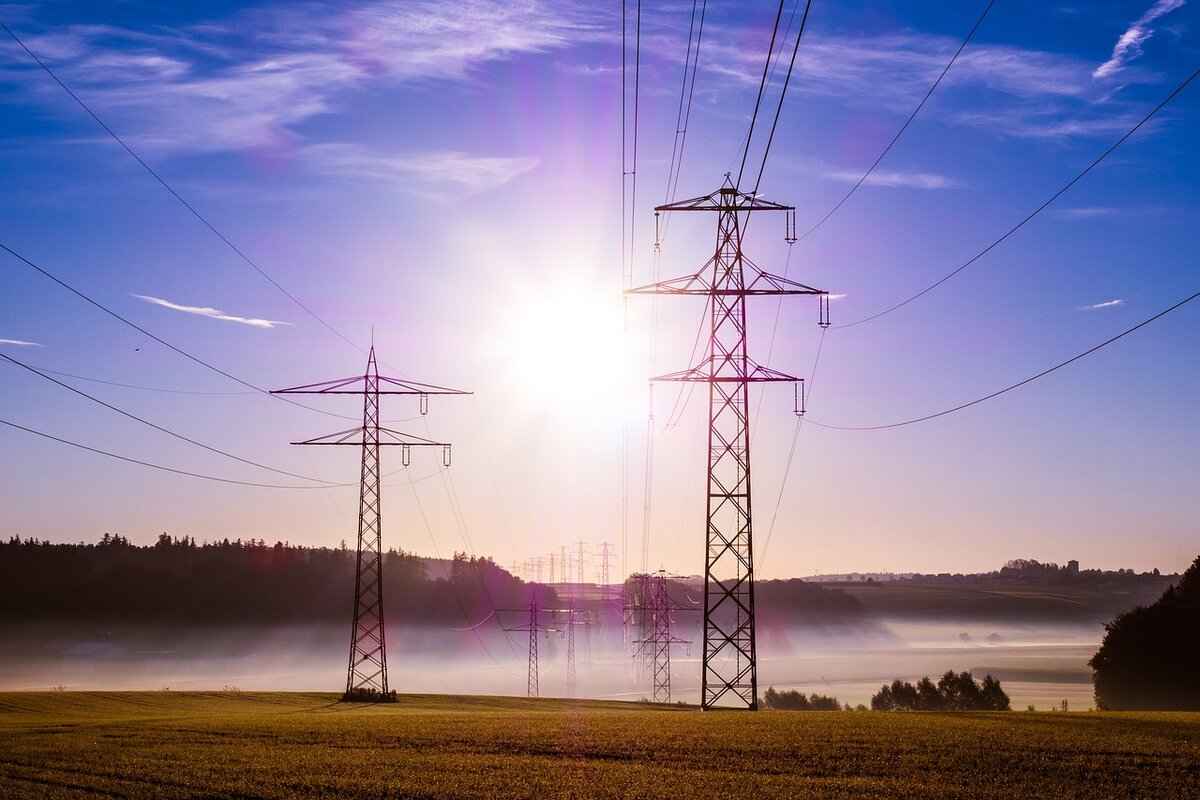This article serves as a comprehensive guide on how to effectively dispute errors in utility bills, outlining steps, tips, and legal frameworks to ensure your concerns are addressed properly. Utility bills can often be puzzling, and errors can lead to overpayments or service disruptions. Understanding how to dispute these errors is essential for every consumer.
Understanding Utility Bills
Utility bills are typically structured with various charges that reflect your consumption of services such as electricity, water, and gas. Familiarizing yourself with your bill’s format can help you identify discrepancies. Look for sections detailing your usage, rate charges, and additional fees. Understanding these components is crucial for recognizing any potential errors.
Common Errors in Utility Bills
- Meter Reading Mistakes: Incorrect meter readings are among the most common errors. Always verify your meter reading against what is listed on your bill.
- Billing Errors: These can arise from human mistakes or technical issues. Review your bill for any charges that seem out of place.
Steps to Dispute a Utility Bill
To effectively dispute a utility bill, follow these steps:
- Gather Documentation: Collect your previous bills, meter readings, and any correspondence with your utility provider. This information will support your claim.
- Contacting Your Utility Provider: Reach out to customer service. Be clear and concise about the discrepancies you’ve identified. Use specific dates and figures to make your case.
Legal Protections for Consumers
Consumers have certain legal protections when disputing utility bills. The Fair Debt Collection Practices Act prohibits unfair practices by utility companies. Familiarize yourself with the regulations in your state, as they may offer additional protections. For instance, many states have specific laws governing billing disputes, which can provide you with leverage during your negotiations.
When to Escalate the Dispute
If your dispute remains unresolved after contacting your utility provider, consider escalating the issue:
- Filing a Complaint with Regulatory Agencies: If necessary, file a complaint with your state’s public utility commission. This agency oversees utility companies and can intervene on your behalf.
- Seeking Legal Advice: In complex cases, consulting with an attorney who specializes in utility disputes may be beneficial. They can offer insights into your rights and help you navigate the legal landscape.
Final Thoughts
Disputing errors in utility bills may seem daunting, but by understanding the process and your rights, you can effectively advocate for yourself. Remember to stay organized, document everything, and don’t hesitate to seek help when needed. Your utility provider has a responsibility to ensure accurate billing, and you have the right to demand transparency.

Understanding Utility Bills
is essential for consumers to manage their expenses effectively. Utility bills can often be confusing and may contain errors. Understanding how these bills are structured is crucial for identifying discrepancies that need to be disputed. A utility bill typically includes charges for services such as electricity, water, gas, and sewage, and it may also encompass taxes and fees. By familiarizing yourself with the components of your bill, you can better assess its accuracy.
Utility bills are generally divided into several sections. The account summary provides a snapshot of your current balance and payment due date. The usage details section outlines your consumption over a specified period, often compared to previous months. Additionally, the rate structure indicates how charges are calculated based on your usage. Understanding these sections can help you spot any anomalies.
- Account Information: This includes your account number, billing period, and contact details for customer service.
- Meter Readings: Actual versus estimated readings are displayed here, which can be a source of confusion if not understood correctly.
- Charges Breakdown: A detailed list of charges, including base fees, usage charges, and any additional fees, is provided.
- Payment Options: This section outlines how you can pay your bill, including online, by mail, or in person.
One of the most frequent issues consumers face is meter reading mistakes. If your bill reflects an estimated reading instead of an actual reading, it may lead to inflated charges. To avoid this, regularly check your meter and compare it with the readings on your bill. If discrepancies arise, document your findings and prepare to dispute the charges.
Another common error involves billing mistakes due to human error or software glitches. These can result in incorrect charges that do not reflect your actual usage. For example, if your bill shows charges for services you did not use, it’s essential to investigate further. Keep a record of your previous bills and consumption patterns to support your case when disputing these errors.
When preparing to dispute a utility bill, gathering all relevant documentation is vital. This includes your previous bills, meter readings, and any correspondence with your utility provider. Having this information organized can streamline the dispute process and increase your chances of a favorable resolution.
Effective communication with your utility provider is also crucial. When contacting customer service, be clear and concise about the discrepancies you’ve identified. Provide specific details and reference any documentation that supports your claim. This approach not only demonstrates your diligence but also helps customer service representatives assist you more effectively.
Consumers have legal protections when disputing utility bills. Familiarizing yourself with these rights can empower you during the dispute process. For instance, the Fair Debt Collection Practices Act protects consumers against unfair billing practices. Additionally, state-specific regulations may offer further protections, so it’s beneficial to research the laws that apply in your area.
Sometimes, disputes cannot be resolved directly with the utility provider. In such cases, it may be necessary to escalate the matter by filing a complaint with state or federal regulatory agencies. These agencies can intervene on your behalf and help resolve ongoing issues. If disputes remain unresolved, seeking legal advice can provide additional support, particularly for complex cases that require professional guidance.

Common Errors in Utility Bills
Utility bills are essential documents that reflect your consumption of services such as electricity, water, and gas. However, they can often be riddled with errors that may lead consumers to pay more than they should. Identifying these errors is crucial for ensuring you only pay for what you actually use. Here are some of the most common errors found in utility bills:
- Incorrect Meter Readings: One of the most prevalent issues is incorrect meter readings. This can happen when the utility company misreads your meter or if there is a malfunction. Regularly checking your own meter can help you compare it against the bill.
- Estimated Billings: Utility companies may provide estimated bills based on previous usage if they cannot access your meter. This can lead to significant discrepancies, especially if your usage has changed. Always verify if your bill is based on an actual reading.
- Billing for Services Not Rendered: Sometimes, consumers may be billed for services they did not receive, such as charges for a service that was canceled or for a period when they were away from home. Always review your bill carefully to ensure all charges are valid.
- Rate Errors: Utility rates can change, but sometimes the old rates are mistakenly applied to your account. This can result in overcharges that can be disputed. Make sure you are aware of the current rates applicable to your service.
- Duplicate Charges: Occasionally, you may find duplicate charges for the same service or period. This can happen due to clerical errors or system glitches. Always check for any repeated charges on your bill.
- Late Fees: Many consumers are surprised by late fees that appear on their bills. If you have made timely payments, ensure that these fees are justified and not a result of processing errors.
By being aware of these common errors, consumers can take proactive steps to dispute any inaccuracies in their utility bills. Regularly monitoring your usage and understanding your bill structure can empower you to challenge erroneous charges effectively. If you identify discrepancies, gather all relevant documentation, including previous bills and meter readings, to support your case when contacting your utility provider.
In conclusion, understanding the common errors in utility bills is the first step in ensuring you are not overpaying for services. By being vigilant and informed, you can protect yourself from unnecessary charges and ensure that your utility bills accurately reflect your consumption.
Meter Reading Mistakes
When it comes to utility bills, one of the most common sources of confusion is meter reading mistakes. These errors can lead to inflated charges that consumers unknowingly pay. Understanding how to verify your meter reading against your bill is essential for identifying discrepancies early on. This section will guide you through the process of checking your meter readings and understanding their implications.
First, it is crucial to know how to read your utility meter. Most meters fall into two categories: analog and digital. For analog meters, you will see a series of dials that indicate your usage. To read an analog meter:
- Start from the leftmost dial and read each one in order.
- Record the number indicated by the pointer on each dial.
- If the pointer is between two numbers, always record the lower number.
For digital meters, the process is simpler. Just look at the display, which usually shows your current usage directly. Make sure to note the reading at the same time each month to maintain consistency.
Next, you must understand the difference between estimated and actual readings. Utility companies may estimate your usage based on previous months if they cannot access your meter. This can lead to significant discrepancies if your actual usage is lower than estimated. To verify your bill:
- Compare the reading on your bill to the reading on your meter.
- If your meter reading is lower than what is shown on your bill, contact your utility provider immediately.
- Keep a record of your meter readings over time to identify patterns or irregularities.
In cases where you find discrepancies, it is essential to act quickly. Gather all relevant documentation, including your meter readings, bills, and any previous correspondence with your utility provider. This will strengthen your case when disputing the charges.
Additionally, familiarize yourself with your utility provider’s policies regarding meter reading errors. Most companies have a formal process for addressing billing disputes. Knowing the steps to take can make the process smoother and more efficient.
Finally, if you frequently encounter issues with your utility bills, consider requesting an audit of your account. This can help uncover any ongoing issues and provide you with peace of mind regarding your utility expenses.
By understanding how to read your meter accurately and verifying your bill against these readings, you can catch errors early and avoid overpaying for services. Remember, knowledge is power when it comes to managing your utility bills!
How to Read Your Meter
Understanding how to read your utility meter is crucial for managing your household expenses effectively. Accurate meter readings can help you avoid overcharges, identify potential leaks, and ensure that you are only paying for the energy you actually use. This guide will walk you through the process of interpreting different types of meters, including analog and digital models, and provide you with the knowledge needed to take control of your utility bills.
Utility meters come in various types, and each requires a slightly different approach to reading. Here are the most common types:
- Analog Meters: These traditional meters have a series of dials that rotate to indicate usage. Reading them involves noting the position of the needle on each dial.
- Digital Meters: These meters display usage in numeric format on a digital screen, making them easier to read.
- Smart Meters: These advanced meters automatically send usage data to your utility provider, but you can still check your usage on the display.
To accurately read your meter, follow these step-by-step instructions:
- Locate Your Meter: Find your utility meter, which is typically located outside your home or in a basement.
- Identify the Type of Meter: Determine whether you have an analog, digital, or smart meter.
- Reading Analog Meters: For analog meters, read from left to right. If the needle is between two numbers, record the lower number. If it’s directly on a number, check the next dial to see if it has passed zero.
- Reading Digital Meters: Simply note the numbers displayed on the screen. These will usually represent kilowatt-hours (kWh) for electricity or cubic feet for gas.
- Smart Meters: Check the display for real-time usage or the last recorded reading. Some smart meters also provide detailed breakdowns of your usage.
After obtaining your meter reading, it’s essential to understand the difference between estimated and actual readings. Utility companies may estimate usage based on previous consumption patterns when they cannot access your meter. This can lead to discrepancies in your bill. Always compare your readings to ensure accuracy.
By learning how to read your utility meter accurately, you empower yourself to monitor your consumption, detect unusual spikes in usage, and ultimately dispute any errors on your bill confidently. Regularly checking your meter can help you stay informed and proactive about your utility expenses.
Understanding Estimated vs. Actual Readings
Utility bills can often be perplexing, especially when it comes to differentiating between estimated and actual readings. Understanding these two types of readings is crucial for consumers to identify potential discrepancies in their bills. This section delves into how utility companies estimate usage and the implications of these estimates on your billing.
What Are Estimated Readings?
Estimated readings occur when a utility company cannot access your meter to obtain an actual reading. This can happen for various reasons, such as adverse weather conditions, accessibility issues, or administrative errors. In such cases, the utility provider will use historical data, average usage patterns, or algorithms to estimate your consumption for the billing period.
How Are Estimated Readings Calculated?
- Historical Data: Utilities often base estimates on your past usage during similar months or seasons.
- Average Usage: If you are a new customer, the utility may calculate your estimated usage based on averages for similar households.
- Weather Adjustments: Some utilities adjust estimates based on weather patterns that may influence consumption, such as unusually hot or cold temperatures.
What Are Actual Readings?
In contrast, actual readings are taken directly from your utility meter, reflecting the precise amount of energy, water, or gas consumed during the billing period. These readings are typically collected by a meter reader or through automated meter reading (AMR) technology.
Importance of Actual Readings
Actual readings are essential for accurate billing. They ensure that you are charged only for the energy or water you have consumed. If your bill is based on an estimated reading, it may not reflect your true usage, leading to potential overcharges or undercharges.
Implications of Estimated Readings on Your Bill
When your bill is based on estimated readings, it can lead to confusion and disputes. For example, if your estimated usage is significantly higher than your actual consumption, you may end up paying more than necessary. Conversely, if the estimate is too low, you might face a larger bill in the following month when the utility reconciles the difference.
How to Verify Your Readings
To avoid billing discrepancies, it’s vital to regularly check your utility meter and compare your findings with your bill. Here are some steps to follow:
- Check your meter reading before the billing cycle ends.
- Record the reading and compare it with what is listed on your bill.
- If you notice a discrepancy, contact your utility provider promptly to resolve the issue.
What to Do If You Spot Discrepancies
If you find that your bill is based on an estimated reading that does not align with your actual usage, it’s essential to take action. Start by gathering your meter readings for the past few months and any relevant documentation. Then, contact your utility provider to dispute the estimated charge. Be prepared to provide evidence to support your claim.
Conclusion
Understanding the difference between estimated and actual readings can empower you as a consumer. By being proactive and knowledgeable about your utility usage, you can avoid unnecessary charges and ensure that your bills accurately reflect your consumption.
Billing Errors
in utility bills can arise from a myriad of factors, including human mistakes, system glitches, or even miscommunication between the utility provider and the consumer. Understanding these errors is crucial, as they can lead to overcharges or incorrect service charges that may affect your monthly budget.
Identifying and disputing billing errors is essential for ensuring that you are only paying for the services you have actually used. The first step in this process is to carefully review your bill. Look for any unusual charges, unexpected increases, or discrepancies in usage compared to previous months. It is also important to check the service dates and ensure that they align with your actual usage period.
Common types of billing errors include:
- Incorrect meter readings: This can happen if the utility company misreads your meter or if there is a malfunction with the meter itself.
- Estimation errors: Utilities may estimate your usage if they cannot access your meter, which can lead to inaccuracies.
- Rate changes: Sometimes, changes in rates may not be communicated effectively, leading to confusion on your bill.
To dispute a billing error, follow these steps:
- Gather Evidence: Collect your previous bills, meter readings, and any relevant correspondence with your utility provider.
- Contact Customer Service: Reach out to your utility provider’s customer service department. Be prepared to explain the error clearly and provide your evidence.
- Document Everything: Keep a record of all communications, including dates, times, and the names of representatives you speak with.
- Follow Up: If you do not receive a satisfactory response, follow up with a formal written dispute.
In some cases, it may be necessary to escalate your dispute. If your utility provider does not resolve the issue, you can file a complaint with the Public Utility Commission in your state or seek legal advice. Knowing your rights under the Fair Debt Collection Practices Act can also empower you in these situations, as it provides protections against unfair billing practices.
Additionally, understanding state-specific regulations can aid in your dispute process. Each state has its own rules governing utility billing, which can provide you with further avenues for resolution. Researching these regulations can help you build a stronger case when disputing errors.
Finally, always remember to remain calm and professional throughout the dispute process. Keeping a level head can help facilitate better communication and increase the likelihood of a favorable outcome. By being proactive and informed, you can effectively manage and dispute billing errors, ensuring that you are only charged for the services you have used.

Steps to Dispute a Utility Bill
Disputing a utility bill can be a daunting task, but knowing the correct steps can significantly streamline the process and increase the likelihood of a successful resolution. This guide outlines the necessary actions to effectively address any discrepancies you may encounter in your utility billing.
1. Gather Documentation
Before initiating a dispute, it is essential to collect all relevant documentation. This includes:
- Your most recent utility bill
- Previous bills for comparison
- Any correspondence with the utility provider
- Meter readings, if applicable
Having these documents on hand will help substantiate your claim and provide a clear basis for your dispute.
2. Understand Your Bill
Take time to carefully review your utility bill. Familiarize yourself with the various charges, such as:
- Fixed Charges: These are constant fees that do not vary with usage.
- Variable Charges: These depend on your consumption and can fluctuate monthly.
- Taxes and Fees: Additional costs imposed by the state or local government.
Understanding these components is crucial for identifying any erroneous charges.
3. Contact Your Utility Provider
Once you’ve gathered your documentation, reach out to your utility provider. Here are some tips for effective communication:
- Be clear and concise about the issue.
- Reference specific charges or readings that you believe are incorrect.
- Keep a record of all communications, including dates, times, and names of representatives.
A polite yet firm approach can often yield better results.
4. Follow Up
If you do not receive a timely response, it is important to follow up. Persistence can often lead to a quicker resolution. When following up, reiterate your initial concerns and ask for an update on the status of your dispute.
5. Know Your Rights
Familiarize yourself with consumer protection laws relevant to utility billing. For instance, the Fair Debt Collection Practices Act provides protections against unfair practices by debt collectors. Understanding your rights can empower you during the dispute process.
6. Escalate if Necessary
If your dispute remains unresolved after contacting your utility provider, consider escalating the matter. You may file a complaint with state regulatory agencies or the Better Business Bureau. Document all steps taken and keep copies of any complaints filed.
7. Seek Legal Advice
In complex cases where significant amounts of money are involved, or if you believe your rights have been violated, it may be wise to consult with an attorney. They can provide guidance on your specific situation and help you navigate the legal landscape surrounding utility disputes.
By following these steps, you can effectively dispute errors in your utility bill, ensuring that you are only paying for the services you actually use. Remember, being informed and proactive is key to a successful resolution.
Gathering Documentation
When it comes to disputing errors in utility bills, one of the most critical steps is . This process not only strengthens your case but also ensures that you present a well-organized argument to your utility provider. Below, we outline the essential documents you should collect before initiating your dispute.
- Current Utility Bill: Always start with the most recent utility bill. This document will serve as the foundation of your dispute, highlighting the charges in question.
- Previous Bills: Collect copies of your previous bills for comparison. This helps identify any unusual spikes in charges or inconsistencies in billing patterns.
- Meter Readings: If available, gather your own records of meter readings. Compare these with the readings listed on your utility bill to spot any discrepancies. Accurate readings are crucial for validating your claim.
- Correspondence with the Utility Provider: Keep records of any communication you’ve had with your utility provider regarding the bill. Include emails, letters, and notes from phone calls. This documentation can demonstrate your proactive approach to resolving the issue.
- Payment Records: Compile evidence of payments made, including bank statements or receipts. This can help clarify your payment history and support your argument if you believe you have been overcharged.
- Contract or Service Agreement: If applicable, review your contract or service agreement with the utility provider. This document may outline specific terms and conditions that are relevant to your dispute.
By gathering these documents, you will be better prepared to present a compelling case. It’s important to ensure that all information is accurate and organized. A well-prepared file not only aids in your dispute but also demonstrates to the utility provider that you are serious about resolving the issue.
In addition to the documents mentioned, consider compiling any relevant photos or screenshots of your meter or bill. Visual evidence can further support your claim and clarify any misunderstandings regarding your usage or charges.
After collecting all necessary documentation, you will be in a strong position to contact your utility provider and initiate the dispute process. Remember, the more thorough your preparation, the more likely you are to achieve a favorable outcome.
Contacting Your Utility Provider
When it comes to addressing issues with your utility bills, effective communication with your utility provider is crucial. This section aims to provide you with actionable tips on how to approach customer service representatives and what information is essential for a successful resolution.
First and foremost, preparation is key. Before contacting your utility provider, take some time to gather all relevant documentation. This includes:
- Your most recent utility bill
- Previous bills for comparison
- Any correspondence related to your account
- Notes on the specific issues you want to address
Once you have your documentation ready, it’s time to make the call. Here are some tips to enhance your communication:
- Be Polite and Professional: Approach the conversation with a calm demeanor. Customer service representatives are more likely to assist you if you remain courteous.
- Clearly State Your Issue: Begin by clearly explaining the problem you are facing. Use specific details such as bill amounts, dates, and any discrepancies you’ve noticed.
- Ask Open-Ended Questions: Instead of asking yes or no questions, pose open-ended questions to encourage a more detailed response. For example, “Can you explain how my bill was calculated this month?”
- Take Notes: Document the conversation, including the representative’s name, the date, and any promises made. This information can be invaluable if you need to follow up later.
In addition to direct communication, consider utilizing the utility provider’s online resources. Many companies offer customer portals where you can manage your account, view billing history, and submit inquiries. This can save time and provide a written record of your concerns.
Furthermore, be prepared to provide specific information during your conversation. Essential details include:
- Your account number
- The type of service you are disputing (e.g., water, electricity, gas)
- Any relevant meter readings or usage patterns
If the representative is unable to resolve your issue, don’t hesitate to ask to speak to a supervisor. Having a higher authority review your case can sometimes lead to quicker resolutions.
Remember, it’s important to stay persistent. If your issue is not resolved after your initial contact, follow up as needed. Keep a record of all communications, including dates and times, to ensure your case is handled efficiently.
In summary, effectively communicating with your utility provider involves preparation, clarity, and persistence. By following these tips, you can navigate the process more smoothly and increase your chances of resolving any disputes regarding your utility bills.

Legal Protections for Consumers
When it comes to disputing utility bills, consumers in the United States are afforded a variety of legal protections that help safeguard their rights. Understanding these protections is essential for effectively navigating disputes with utility companies. This section will delve into the relevant laws and regulations that empower consumers and outline the steps they can take to ensure their concerns are addressed.
The Fair Debt Collection Practices Act (FDCPA)
The FDCPA is a federal law that regulates the practices of debt collectors, including those collecting utility debts. This act prohibits abusive, unfair, or deceptive practices in the collection of debts. For consumers disputing utility bills, this means:
- Debt collectors must provide verification of the debt upon request.
- Consumers are protected from harassment, such as repeated calls or threats.
- Consumers have the right to dispute the validity of the debt and request that collection activities cease until the dispute is resolved.
Utilizing the FDCPA can be a powerful tool for consumers who feel they are being treated unfairly by utility companies or their collection agencies.
State Utility Regulations
In addition to federal protections, each state has its own set of regulations governing utility billing practices. These regulations can vary significantly, so it is crucial for consumers to familiarize themselves with the laws specific to their state. Key aspects often include:
- Requirements for utility companies to provide detailed billing statements.
- Timeframes within which consumers must dispute charges.
- Procedures for filing complaints with state utility commissions.
Many states also have public utility commissions that oversee utility services and can assist consumers in resolving billing disputes. Knowing how to navigate these resources can greatly enhance a consumer’s ability to address issues effectively.
Consumer Protection Laws
Various consumer protection laws exist at both the federal and state levels, designed to shield consumers from unfair billing practices. These laws often require utility companies to:
- Provide clear and accurate billing information.
- Notify consumers of any changes in rates or terms of service.
- Address consumer complaints in a timely and effective manner.
Consumers are encouraged to document any interactions with utility companies, including dates, times, and the names of representatives spoken to. This documentation can be invaluable if further action is required.
Steps to Take When Facing Disputes
In the event of a billing dispute, consumers should take the following steps:
- Review Your Bill: Carefully examine your utility bill for any discrepancies.
- Gather Documentation: Collect any relevant documents, including previous bills, payment receipts, and correspondence with the utility company.
- Contact Customer Service: Reach out to your utility provider’s customer service department to discuss the issue. Be clear and concise about your concerns.
- Follow Up in Writing: If the issue is not resolved, send a written dispute letter to the utility company, outlining your concerns and including copies of supporting documents.
- Escalate if Necessary: If the dispute remains unresolved, consider contacting your state utility commission or seeking legal advice.
Conclusion
Understanding the legal protections available when disputing utility bills is crucial for consumers. By leveraging federal and state laws, consumers can effectively advocate for their rights and ensure fair treatment in the billing process. Always remember to document your interactions and seek assistance from regulatory bodies if necessary.
The Fair Debt Collection Practices Act
The Fair Debt Collection Practices Act (FDCPA) is a crucial piece of legislation that protects consumers from abusive debt collection practices. While it primarily addresses debts related to credit cards, personal loans, and other types of consumer debt, it also extends its protections to utility disputes. This section delves into the implications of the FDCPA in the context of utility bills, highlighting the rights it affords consumers and the responsibilities it imposes on debt collectors.
Understanding the FDCPA’s Scope
The FDCPA was enacted to eliminate abusive, deceptive, and unfair debt collection practices. Under this act, consumers are provided with several protections when dealing with debt collectors, including those who collect on unpaid utility bills. This means that if you find yourself in a dispute over your utility bill, you are entitled to certain rights that can help you navigate the situation more effectively.
Key Protections Offered by the FDCPA
- Prohibition of Harassment: Debt collectors are prohibited from using abusive language, threats, or any form of intimidation when attempting to collect a debt. This includes utility bills.
- Right to Dispute: Consumers have the right to dispute the validity of the debt. If you believe your utility bill is incorrect, you can request verification from the collector.
- Limitations on Communication: The FDCPA restricts how and when debt collectors can contact consumers. For instance, they cannot call you at unreasonable hours or at your workplace if you’ve requested them not to.
- Disclosure Requirements: Collectors must provide clear and accurate information about the debt, including the amount owed and the name of the creditor, which in this case would be the utility provider.
How the FDCPA Applies to Utility Disputes
When a utility provider turns over an unpaid bill to a collection agency, the FDCPA comes into play. Consumers should be aware that they can invoke the protections of the FDCPA if they feel that the collection agency is acting unfairly or unlawfully. For example, if a utility bill is based on an estimated reading that you believe is incorrect, you have the right to contest that bill and seek clarification from the collector.
Steps to Take When Facing Utility Debt Collection
1. Review Your Bill: Ensure that you understand the charges and identify any discrepancies.2. Document Everything: Keep records of all communications with the utility company and the debt collector.3. Send a Dispute Letter: If you believe the bill is erroneous, send a written dispute to the debt collector within 30 days of receiving their notice.4. Know Your Rights: Familiarize yourself with the FDCPA to ensure that your rights are upheld during the collection process.
Conclusion
In summary, the Fair Debt Collection Practices Act provides essential protections for consumers facing utility disputes. By understanding your rights under this law, you can effectively challenge unfair practices and ensure that your concerns are addressed appropriately. Always remember to document your interactions and seek assistance if you feel overwhelmed by the process.
State Utility Regulations
play a crucial role in ensuring fair billing practices and consumer rights in the utility sector. Each state in the United States has established its own set of regulations that govern how utility companies bill their customers. Understanding these regulations is essential for consumers who wish to dispute errors in their utility bills effectively.
To begin with, it’s important to recognize that utility regulations often vary significantly from one state to another. This means that what may be permissible in one state could be prohibited in another. For instance, some states may have strict guidelines regarding how estimated bills are calculated, while others may allow utilities more leeway in their billing practices. Therefore, consumers must familiarize themselves with their state’s specific laws to strengthen their disputes.
One of the best ways to find state-specific regulations is by visiting the website of your state’s public utility commission (PUC) or public service commission (PSC). These organizations oversee utility companies and maintain comprehensive resources regarding billing practices and consumer rights. On their websites, you can often find:
- Consumer Guides: Many PUCs provide guides that explain utility billing practices, including how to read your bill and understand your rights.
- Complaint Procedures: Detailed steps on how to file a complaint against a utility company if you believe your bill is incorrect.
- Regulatory Updates: Information on any recent changes to utility regulations that may affect billing practices.
Additionally, state regulations often include provisions that protect consumers from unfair billing practices. For example, many states require utility companies to provide accurate meter readings and to notify customers if their bills are estimated rather than based on actual usage. Understanding these protections can empower consumers to challenge incorrect charges effectively.
When preparing to dispute a utility bill, consumers should gather all relevant documentation, including past bills, meter readings, and any correspondence with the utility company. This information can be invaluable when referencing specific state regulations that support your case. For instance, if your state mandates that utilities must provide a detailed explanation of estimated charges, you can cite this regulation if your bill lacks clarity.
Moreover, consumers can enhance their disputes by leveraging local advocacy groups or legal aid organizations that focus on utility issues. These groups often have a wealth of knowledge about state-specific regulations and can provide guidance on how to navigate the dispute process effectively.
In summary, understanding is vital for consumers who wish to dispute errors in their utility bills. By researching state laws, utilizing resources from public utility commissions, and gathering necessary documentation, consumers can significantly strengthen their position when addressing billing discrepancies. Empowered with knowledge, consumers can ensure that they are only charged for the services they actually use, reinforcing their rights in the utility marketplace.

When to Escalate the Dispute
When faced with a utility bill dispute that cannot be resolved through direct communication with your provider, it is essential to know your options for escalation. Understanding when and how to escalate your dispute can significantly enhance your chances of achieving a satisfactory resolution. This section will guide you through the necessary steps to take when you find yourself in such a situation.
Recognizing the Need to Escalate
Before escalating a dispute, it is crucial to assess the situation. If you have made multiple attempts to resolve the issue directly with your utility provider and have not received a satisfactory response, it may be time to consider escalating your complaint. Common indicators that escalation is necessary include:
- Lack of Response: If your utility provider fails to respond to your inquiries within a reasonable time frame.
- Unresolved Issues: If the same issue persists despite your attempts to clarify or rectify it.
- Unsatisfactory Solutions: If the resolutions offered by the utility provider do not address your concerns adequately.
Filing a Complaint with Regulatory Agencies
Once you have determined that escalation is necessary, the next step is to file a complaint with the appropriate regulatory agency. Each state has its own public utility commission (PUC) that oversees utility services. Here’s how to proceed:
- Research Your State’s PUC: Visit the website of your state’s public utility commission to find specific guidelines for filing a complaint.
- Prepare Your Documentation: Gather all relevant documents, including your utility bills, correspondence with the utility provider, and any other evidence that supports your case.
- Submit Your Complaint: Follow the instructions provided on the PUC’s website to submit your complaint. Be sure to include all necessary details and documentation.
What to Expect After Filing a Complaint
After filing your complaint, the regulatory agency will typically review the information provided and may contact your utility provider for their side of the story. Depending on the complexity of the issue, this process can take time. Be prepared for follow-up communications from the agency, and be ready to provide any additional information they may request.
Seeking Legal Advice
In some cases, your dispute may involve complex legal issues, such as violations of consumer protection laws or contractual obligations. If you find yourself in this situation, seeking legal advice can be beneficial. Here are some tips for consulting with an attorney:
- Choose the Right Attorney: Look for an attorney experienced in utility disputes or consumer protection law.
- Prepare for Your Meeting: Bring all relevant documentation and be ready to explain the details of your dispute clearly.
- Discuss Possible Outcomes: Your attorney can help you understand the potential outcomes and advise you on the best course of action.
Conclusion
Escalating a utility bill dispute can be a daunting process, but knowing when and how to take these steps is crucial. By recognizing the signs that indicate a need for escalation, filing a complaint with the appropriate regulatory agency, and seeking legal advice when necessary, you can advocate effectively for your rights as a consumer. Remember, persistence and thorough documentation are key to navigating this process successfully.
Filing a Complaint with Regulatory Agencies
When you encounter persistent issues with your utility provider that remain unresolved after direct communication, it may be necessary to escalate the situation by . This step is crucial for ensuring that your concerns are formally recognized and addressed. Below is a detailed guide on how to navigate this process effectively.
Understanding Regulatory Agencies
Regulatory agencies at both the state and federal levels are established to oversee utility companies and protect consumer rights. The Federal Energy Regulatory Commission (FERC) and state public utility commissions (PUCs) play pivotal roles in regulating utility services. Familiarizing yourself with these bodies is essential before proceeding with a complaint.
Steps to File a Complaint
- Document Your Issues: Before filing a complaint, compile all relevant documentation, including bills, correspondence with your utility provider, and any notes from phone calls. This information will serve as evidence of your dispute.
- Identify the Appropriate Agency: Depending on your issue, you may need to contact a specific agency. For example, if your complaint involves electricity, you would typically reach out to your state’s PUC.
- Prepare Your Complaint: Clearly outline the nature of your complaint, including specific details about the issue, your attempts to resolve it, and the outcome you seek. Be concise and factual.
- Submit Your Complaint: Most regulatory agencies offer online submission forms. Ensure you follow the guidelines provided and attach any necessary documentation.
What to Expect After Filing
Once your complaint is submitted, the agency will review the information provided. You can expect the following:
- Acknowledge Receipt: Most agencies will send a confirmation that your complaint has been received.
- Investigation: The agency may conduct an investigation, which could involve contacting your utility provider for their side of the story.
- Resolution: After reviewing the evidence, the agency will issue a decision. They might mediate between you and the utility provider, or in some cases, enforce penalties against the provider if violations are found.
Legal Protections During the Process
During this process, it’s important to know your rights. The Fair Utility Practices Act and other consumer protection laws provide safeguards against unfair treatment. If you believe your rights have been violated, documenting these instances can strengthen your case.
Seeking Further Assistance
If your complaint does not yield a satisfactory resolution, consider seeking legal advice. An attorney experienced in utility disputes can provide guidance on the next steps, which may include further legal action or negotiation strategies.
In summary, filing a complaint with regulatory agencies is a critical step for consumers facing unresolved issues with utility providers. By understanding the process, preparing adequately, and knowing your rights, you can enhance your chances of achieving a favorable outcome.
Seeking Legal Advice
can be a crucial step in resolving complex disputes related to utility bills. While many issues can be addressed directly with your utility provider, there are situations where the assistance of a legal professional may be necessary to protect your rights and ensure a fair resolution. This section outlines when it is advisable to consult an attorney and how to prepare for that meeting.
Understanding when to seek legal advice is essential. If you encounter persistent billing errors that your utility company refuses to correct, or if you believe your rights as a consumer are being violated, it may be time to consult an attorney. Additionally, if your utility service has been disconnected due to a billing dispute, legal representation can help you navigate the complexities of the situation.
What to Prepare for Your Meeting with an Attorney
- Documentation: Collect all relevant documents related to your utility bills. This includes copies of your bills, payment records, correspondence with the utility company, and any notes from conversations with customer service representatives.
- Details of the Dispute: Clearly outline the nature of your dispute. Be prepared to explain the timeline of events, the specific errors you have identified, and any attempts you have made to resolve the issue directly with the utility provider.
- Legal Questions: Prepare a list of questions you have for the attorney. This could include inquiries about your rights, potential legal strategies, and the likelihood of success in your case.
During your meeting, the attorney will assess your situation and advise you on the best course of action. They may suggest sending a formal letter to the utility company, filing a complaint with regulatory agencies, or even pursuing legal action if necessary. It’s important to choose an attorney who specializes in consumer rights or utility disputes to ensure you receive knowledgeable guidance.
Understanding the Costs
Before engaging an attorney, discuss their fee structure. Some attorneys may work on a contingency basis, while others may charge hourly rates or flat fees. Understanding these costs upfront will help you make an informed decision about pursuing legal action.
In summary, seeking legal advice can be a valuable step in resolving complex utility bill disputes. By preparing adequately for your meeting and understanding your rights, you can enhance your chances of achieving a favorable outcome. Remember, you are not alone in this process, and legal professionals are there to help protect your interests.
Frequently Asked Questions
- What should I do if I find an error on my utility bill?
If you spot an error, gather all relevant documentation, such as previous bills and meter readings. Then, contact your utility provider’s customer service to discuss the discrepancy. Be clear and concise about the issue to facilitate a quicker resolution.
- How can I tell if my utility bill is estimated or based on actual readings?
Check your bill for a note indicating whether the charges are based on estimated or actual meter readings. Actual readings will usually be more accurate, while estimated readings may lead to overcharges or undercharges based on past usage patterns.
- Are there any legal protections for consumers disputing utility bills?
Yes! Consumers are protected under laws like the Fair Debt Collection Practices Act, which safeguards against unfair billing practices. Additionally, each state has its own regulations that provide further protections, so it’s important to be aware of those as well.
- When should I escalate my dispute to a regulatory agency?
If your issue remains unresolved after contacting your utility provider, it may be time to escalate. You can file a complaint with state or federal regulatory agencies, which can help mediate the situation and ensure your rights are upheld.
- What documents do I need to gather before disputing a utility bill?
Collect your recent utility bills, any previous bills for comparison, your meter readings, and any correspondence with your utility provider. This documentation will support your case and help clarify the error.














